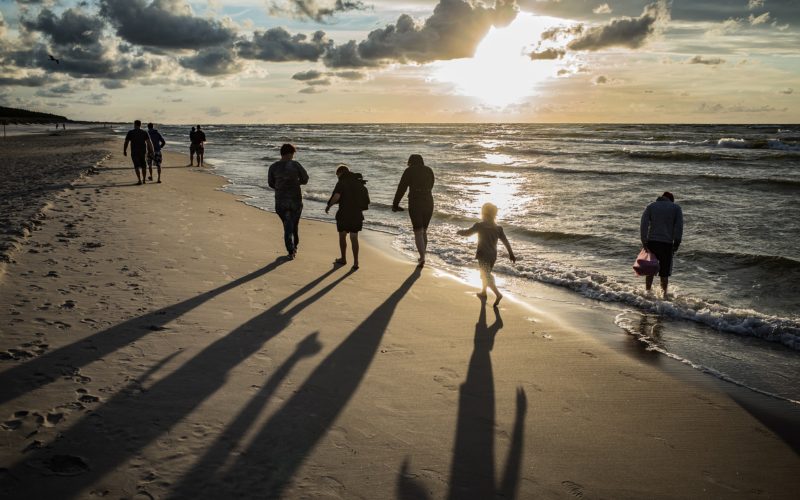The Shadow was a popular radio show in 1930’s America and starred Orson Welles. The show opened with the line “Who knows what evil lurks in the hearts of men? The Shadow knows!” That line came to mind as I read writer Emma Pattee’s recent article Forget your carbon footprint. Let’s talk about your climate shadow.
Pattee explains how she hit on the idea of the climate shadow.
When BP co-opted the concept of the carbon footprint and tied it to small, “feel-good” activities like shortening your showers or hanging your clothes to dry, they crucially shifted the narrative from corporate accountability to personal responsibility… The problem with the carbon footprint is that our footprints don’t paint an accurate picture of our true individual impact on the climate crisis.
Enter: the “climate shadow,” a concept that I created to help each of us visualize how the sum of our life’s choices influence the climate emergency. Everywhere you go, it goes too, tallying not just your air conditioning use and the gas mileage of your car, but also how you vote, how many children you choose to have, where you work, how you invest your money, how much you talk about climate change, and whether your words amplify urgency, apathy, or denial.
For me, the climate shadow is a simple but brilliant concept. It simultaneously diminishes the carbon footprint while advancing the idea that we can yield much greater power through our activism. Pattee continues…
Imagine if Greta Thunberg had decided to devote her attention to using less water or ditching dairy products instead of creating #FridaysforFuture.
Building on this idea, the objective for an individual could be to have no ‘climate shadow’, or even a ‘climate light’. Sure, we will still have a carbon footprint, but we can more than make up for it by our non-consumer actions.
In contrast, the CEO of Exxon would have a massive climate shadow, equivalent to that of millions of ordinary people. So too the ministers in the Australian Government that continues to support new gas and coal developments. It would also be a fair bet that most people with lots of money and wealth would cast very big climate shadows. Looking at it this way shows that the vast majority of humanity’s climate shadow is contributed by only a very few people, and you will undoubtedly find that most of them are men. Which brings us back to The Shadow’s signature line: “Who knows what evil lurks in the hearts of men? The Shadow knows!”
Just as the campaign to change the threat of ‘global warming’ to the less sinister sounding ‘climate change’ was unfortunately successful, so too has the carbon footprint become popularized. It has even moved to the broader corporate sector. Notice how more and more companies are promoting their reduced carbon footprints and green credentials?
As Pattee points out,
…(the) tragic outcome is that by promoting the carbon footprint as the single most important thing for concerned citizens to focus on, the fossil fuel industry ensured that we wouldn’t put our energy toward what truly matters: collective action and activism.
Collective action means working to get effective legislative change to dramatically and quickly reduce fossil fuel use and stop deforestation.
This doesn’t mean that reducing our individual carbon footprint is without any merit at all. And Pattee makes this easy for us by quoting the advice of Susan Joy Hassol from Climate Communication: “The top five personal actions are one fewer child, be car-free, avoid plane travel, use green energy, and eat a plant-based diet. Everything else is pretty much inconsequential.” And if you want to know why a plant-based diet makes such a difference, then check out Disrupting the Cow.
Pattee concludes:
To know the true expanse of your impact on the planet, I would urge you to overlook your carbon footprint. Instead, look behind you, at your shadow.
Thank you to Emma Pattee for bringing us the concept of the “climate shadow”. Let’s take her advice and start to reduce ours and produce some climate light instead.
If you’re still not sure how best to reduce your climate shadow, then check out The best thing you can do to tackle global warming.
The writer is a co-author of Court of the Grandchildren, a novel set in 2050s America.
Image Credit: Hamsterfreund at Pixabay
